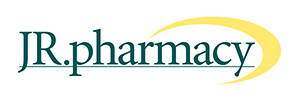The key to financial management is ‘timeliness’ and ‘accuracy (detail)’. Historically, financial reporting has been given little importance in pharmacy because of the following reasons:
- Regulation of ownership and location rules has protected income;
- Pharmacy is a cash business with the largest payer being the Government;
- Access to money from banks has been effortless;
- Meeting the banks covenants has historically been easy.
Access to funding
No doubt many of you are currently feeling access to funding becoming more difficult. Nowadays, the application process involves historical trading results, interim results and forecasts for at least two years (in some cases longer). Previously historical information was about it.
While the ownership and location rules have not changed the banks are enforcing rules and covenants that have always existed with the advancement of loans. This is happening because pharmacy is coming under pressure and many do not understand the full impact of where their business is being ‘chipped away at’ until well after the end of a reporting period.
Competition
The proliferation of warehouse style pharmacies, increased competition from supermarkets and discount department stores as well as on-line offerings both here and abroad are eating away at community pharmacy revenues. To date pharmacies response has been to enter a discounting strategy without understanding the full impact on the net profit. The profit from dispensing generic medicines is currently disguising the issue facing many.
Add to this competition the revision of trade terms in recent months is affecting margins and the fact that pharmacy’s biggest payer has commenced shrinking the amount it will pay for medicines (refer the decline in PBS cheques during February and March) and we end up with a reasonably volatile situation for those not paying attention to the results of the pharmacy.
Have the banks stopped lending? Absolutely not! I have many clients’ still able to access money for all types of investments and purposes. These owners and operators know what the net impact on their business will be. They are able to sharpen their focus and plan for change. Without adequate reporting they simply could not do that.
Financial reports
Tracking retail financial data enables pharmacy owners and managers to make decisions and control the performance of the business. Pharmacy has a myriad of data that can be collected and analysed. It is however useless unless the data can be assembled into easy to read reports in a timely manner.
The fundamentals of financial reporting are the profit and loss, balance sheet and funds flow (where the money went) report. Each is inter-connected to the point where if one does not make sense none will.
Getting quality data into the accounting system to provide quick easy to read reports is paramount. To achieve this you need to automate such things at the importation of point of sale data (daily sales, customer, script and items numbers) and reconciliation of the monthly supplier statements.
Historically the reporting has been focused on the production of Business Activity Statements. You cannot manage the business using a tax reports.
The financial reports should therefore be tailored for your pharmacy and be understandable – my view is that common SME accounting packages only go part the way. For example, if you operate traditional service structures you must have a tool that consolidates the results.
Conclusion
In the future the success of a pharmacy will not be determined by the ability of the owner/manager to open the doors each day, fill scripts, negotiate better deals with suppliers, minimise costs and judge profit by the amount of cash in the bank.
To sharpen you focus you are going you have to use the financial reports to manage and understand the present, selectively forget the past and create the future.
by Johnston Rorke
http://www.jr.com.au




